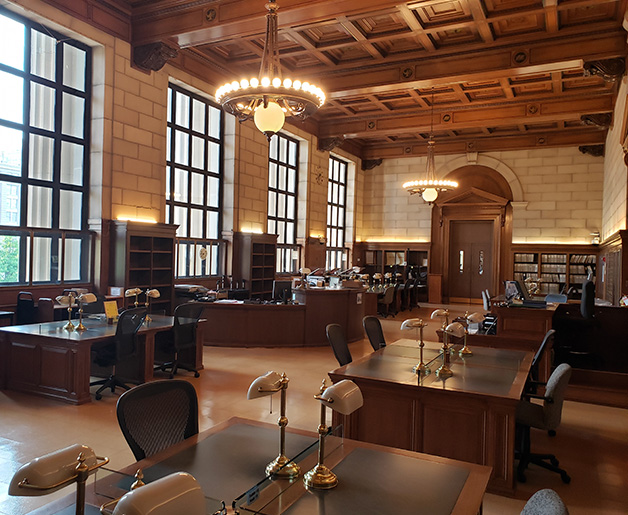
A Message from the Archivist to Our Researchers
June 12, 2020
Dear Researchers,
It seems like so long ago since we last saw you in our research rooms. We miss seeing you and helping you with your research.
The National Archives is committed to the health and safety of our staff, volunteers and the public. With the closure of our facilities, we have adjusted our operations to balance the need to conduct our mission-critical work while also adhering to safety guidelines from the Federal Government. National Archives staff has continued to serve the public by responding to as many inquiries as possible while working remotely.
Many of our services are available online:
- The National Archives Catalog contains archival descriptions of our holdings and is the online portal to our digital records.
- National Archives staff is responding to reference questions or requests for records sent to inquire@nara.gov and to specific units’ email addresses.
- Researchers can ask—or answer—research questions on History Hub, a crowdsourced history research platform sponsored by the National Archives. Researchers can also search History Hub to see if a question has already been asked and answered.
- Members of the public can explore our online resources by visiting www.archives.gov and viewing our online exhibits.
- Teachers and parents can use our educational resources.
- Everyone can help the whole community by volunteering in our Citizen Archivist Missions.
- The National Archives’ Presidential Libraries and Museums website includes online education resources, virtual programs and exhibits, and information on conducting remote research at the 14 libraries.
We have also been using this time to undertake projects that will have long-term benefits for public access. National Archives staff has been working remotely to create and update finding aid data to enhance your research. Since March 16, we have added 234,139 archival descriptions and 6,477,642 digitized pages to the National Archives Catalog. Staff has also been tagging and transcribing records in the Catalog. Transcribing records, especially hand-written documents, makes these records easier to find. Since March, the number of available tags and transcriptions in the Catalog has tripled.
The Catalog now provides over 115 million digital copies of our holdings and we continue to add more every day. Sign up for our Catalog Newsletter to find out about new additions to the Catalog and projects that you can do with us. Check out our popular Record Group Explorer, a finding aid that provides visualizations of the data in our Catalog and provides simple paths into the records.
The work we are currently doing better positions us to make access happen while at the same time helping to keep you and our staff safe. Nevertheless, we understand that our remote services are not a substitute for being physically in the research room. We know you are anxious to return, and we are too.
At this point, we cannot tell you when that will be possible. We are working diligently on our plans for the gradual reopening of our facilities across the country, in consultation with our colleagues at the Library of Congress and the Smithsonian. The reopening plans will be based on guidance from the Centers for Disease Control and Prevention, the Office of Personnel Management, and the Office of Management and Budget, as well as information from subject matter experts from within and outside of the federal government. The reopening of each research room will occur based on our assessment of local conditions against a set of established criteria.
We are also looking at how we can promote the safety, health, and well-being of our staff, volunteers, and the public when we do reopen our facilities for research. This will mean changes to promote social distancing, changes to cleaning procedures for shared spaces and equipment, and some process changes. We will communicate with you about these changes as we get closer to reopening. After we reopen, we will provide opportunities for you to engage with us as we work to improve the researcher experience while also keeping everyone safe.
Thank you for your patience as we carry out our mission during this unprecedented time. We send our best wishes for your good health and well-being, and we look forward to the day when we can welcome you back to our facilities.
Sincerely,

DAVID S. FERRIERO
Archivist of the United States
